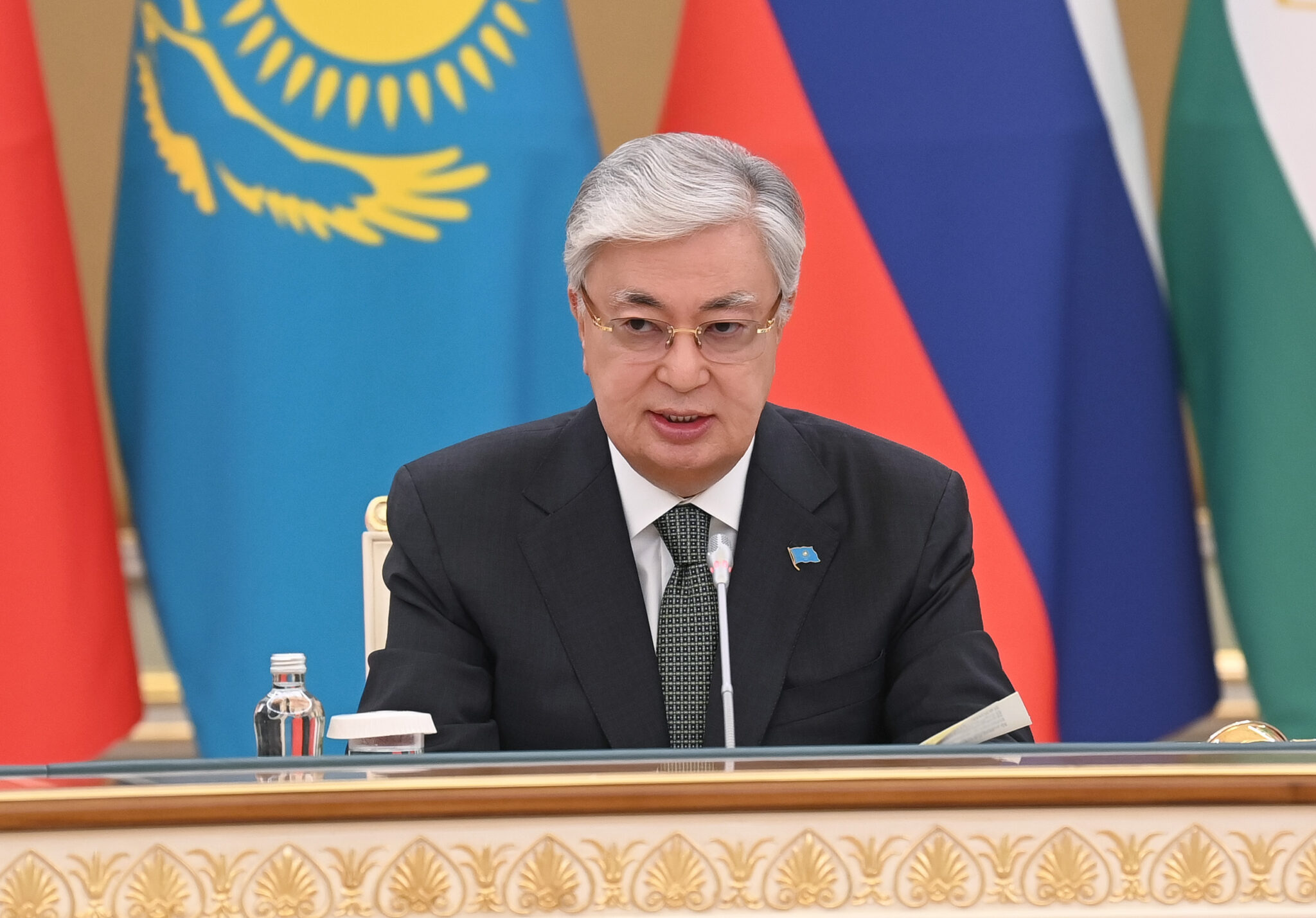ASTANA: Kazakhstan is making every effort to enhance the potential of the Shanghai Cooperation Organization (SCO) during its chairmanship, President Kassym-Jomart Tokayev said at a May 21 meeting with SCO Foreign Ministers.
Tokayev expressed his deep condolences to the people and leadership of Iran following the tragic death of President Ebrahim Raisi and Foreign Minister Amir-Abdollahian. He also acknowledged the participation of Iranian representatives despite their nation’s difficult time and welcomed Belarus, which will soon join the SCO, to their first Foreign Ministers’ Council in Astana.
Tokayev thanked the participating countries for supporting Kazakh initiatives and for their fruitful joint work, highlighting the hosting of over 100 large-scale events, including digital, tourism, and energy forums.
He noted significant projects nearing completion, such as the Spiritual Sanctuaries project, and the declaration of 2024 as the SCO Year of Environment on Kazakhstan’s initiative. He emphasized ongoing preparations for additional events in energy, transport, and culture, and underscored the importance of the upcoming Astana SCO summit.
The President highlighted that over 20 related documents have been submitted to the Council of Heads of State for consideration, expressing confidence in their effective implementation to strengthen the comprehensive partnership within the SCO.
Amid global strategic uncertainty, Tokayev stressed the importance of an integrated approach that considers all parties’ interests and the constant search for compromises. He voiced his belief that the time has come to collectively promote the ideals and values of peaceful and harmonious development for the sake of all humanity.
“This is why Kazakhstan proposed to develop the SCO Initiative On World Unity for Just Peace and Harmony. The adoption of this document, as well as the SCO Astana Declaration during the upcoming summit, will, in our opinion, contribute to the consolidation of international efforts to resolve conflicts in various regions of the world,” he said.
The President called for further steps to reform the SCO, praising member states’ active participation in developing specific decisions to improve its activities. He outlined Kazakhstan’s balanced proposals for transforming the SCO into an effective multilateral cooperation mechanism.
Tokayev emphasized the importance of increasing the SCO’s potential to overcome common challenges and threats, with a focus on the fight against three forces of evil – terrorism, separatism, and extremism. He mentioned the Cooperation Program to combat these issues and the completion of the SCO Anti-Drug Strategy, which aims to strengthen measures to combat the drug threat and block terrorist financing channels.
The President also touched upon cybersecurity issues, placing emphasis on early identification of cyber threats and developing mechanisms to ensure the stable functioning of the SCO countries’ information infrastructure.
Addressing the situation in Afghanistan, he stressed the need to prevent a humanitarian crisis and create conditions for long-term stabilization. He reiterated the importance of Kazakhstan’s initiative to establish the United Nations’ Regional Center for Sustainable Development Goals for Central Asia and Afghanistan in Almaty.
Regarding climate change, Tokayev emphasized the necessity of updating SCO approaches to combating natural disasters. He thanked the SCO countries for their solidarity and assistance during the extensive and unprecedented floods in Kazakhstan this spring, stressing the need for urgent preventive measures to avoid global natural disasters.
According to the President, the upcoming summit reflects the SCO’s main goals of ensuring regional peace, security, and stable development. He thanked the heads of foreign policy departments for their active work ahead of the summit, recalling the creation of the SCO, initially called the Shanghai Five, in April 1996.
“It was then that the so-called spirit of the SCO was established, and it is very good that are consistently strengthening the basic principles of our interaction in the interests of peace and security in Asia, on the Eurasian continent and, one might say, throughout the world,” he concluded.


